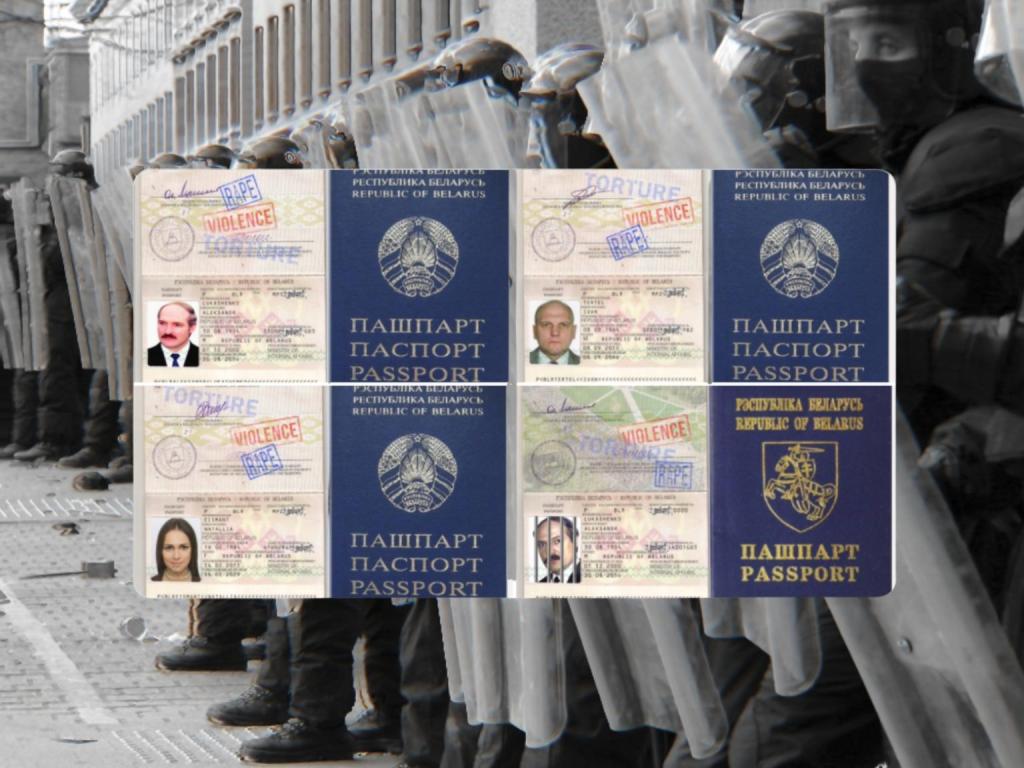Belarus hackers: The Belarusian Cyber Partisans have few qualms leveraging digital technology to screw with their targets in the most ruthless way possible.
Earlier this year, the hacktivist collective earned global recognition after they hacked into the Belarusian rail network, which severely disrupted Russian troop movements as they crossed over into Ukraine.
Now, in their most recent display of digital warfare, the Cyber Partisans hacked into the database containing Belarusian passport details. They then began selling NFTs created from the personal data of authoritarian Belarusian officials on OpenSea.
After the original collection was promptly removed by OpenSea administrators, the NFTs were banished to the confines of the deleted web page crawler Wayback Machine. Then, 16 minutes after midnight on September 16, a new collection of the Belarusian passports reappeared on LooksRare, where it still resides.
Shortly after, the Cyber Partisans Twitter account announced the re-release, expressing some concern over the centralised nature of NFT platforms.
Belarus hackers and NFTs
The most expensive NFT in the collection features the passport of Alexander Grigoryevich Lukashenko, who holds the title of being the first and only president of Belarus since taking office in July 1994. His status as the longest-sitting European president has recently become a focal point of widespread civil unrest in the country.
Ironically, Lukashenko first rose to power on the promise of removing corruption from Belarus, however according to reports from human rights organisation Transparency International, he has since done plenty to establish himself as one of Eastern Europe’s most corrupt and brutal dictators.
The irony is that Alexander Lukashenko was elected by the people of Belarus on an anti-corruption platform. He has betrayed his mandate and the trust of his people on many occasions during his 27 years as president”, said Oksana Drebezova, Transparency International’s national contact in Belarus.

Sympathetic political dissidents and Web3 degenerates alike can choose to pay anywhere from 0.35 to 3.4 ETH (US$465 – US$4,500) for a passport of Belarus’ most notorious “dictators and traitors”. The hackers assure that all proceeds from sales will go directly to their work in “hitting bloody regimes in Minsk and Moscow.
Why mint the passports of Belarusian autocrats as NFTs?
In an interview with the Chainsaw, Yuliana Shemetovets, spokesperson for the Cyber Partisans, said that the hacktivist collective is using every tool at their disposal to bring attention to what goes on in Belarus while raising funds for the war efforts in Ukraine.
“We believe that being a digital resistance group, it would be interesting to use modern digital tools in order to bring people’s attention to our work, how we help Ukraine and what’s going on in Belarus”, said Shemetovets.
Shemetovets added that minting the passports as NFTs was half publicity stunt and half fundraising campaign, executed with the hope that people from around the world would see their work and “help us continue damaging the dictatorship regimes in Belarus and Russia”.
“The main goal is to raise funds to continue our work and give people the opportunity to become a part of our successful hacktivist movement.”
Yuliana Shemetovets, Belarusian Cyber Partisans
Ukraine
While Ukraine has understandably been the centre of media attention for its efforts in resisting Russia’s invasion, the ongoing political corruption and crimes perpetrated against everyday citizens in Belarus have long gone largely unreported by Western media outlets.
Extreme levels of “grand corruption” are unsettlingly commonplace in Belarus, with power being highly concentrated within the upper levels of government and political elites. According to figures from Freedom House, the state controls 70 per cent of the economy and the existing legal frameworks are unable to keep the most powerful officials accountable.
More disturbingly, human rights NGO Amnesty International reports that torture and other forms of state-sanctioned violence are widespread and endemic in Belarus. In addition, the rights to freedom of expression, association and peaceful assembly also remain severely restricted.
This is why, says Shemetovets, the Cyber Partisans have been increasing their assault on highly centralised forms of power in Belarus, with plans to “10x” the size of the hacking group being supported by donations received via digital assets.
Passport databases
When asked about how the hackers justify having control over the Belarusian passport database — which according to Shemetovets, “contains the passport information of every citizen in Belarus, even those with restrictive access like KGB agents ” — she said that the Belarusian government never cared to secure the data properly in the first place.
“We understand that the Belarusian regime didn’t care to protect this data, even of the people who are working for it. And we understand the responsibility of us having this information and doing everything possible to keep this data safe, by saving it on a server isolated from the internet”, she added.
“And we never reveal sensitive information about regular citizens, we just reveal information on those who work for the corrupted dictatorship regime and committed crimes against the Belarusian people”, Shemetovets commented.
Ultimately, the goal of the Cyber Partisan collective is to “overthrow the illegitimate Lukashenko’s regime” while protecting the sovereignty of Belarus.
“We want to start the process of transitioning power to democracy and the rule of law”, said Shemetovets.
When pressed on what the hacking group’s next big move might be, Shemetovets assured the Chainsaw that while the Cyber Partisans “never discuss future attacks”, their iron-clad determination to their overarching strategy remains strong — “We will help Ukraine protect their freedom, weaken Russia and free Belarus.”
Belarus hackers are sure to stay in the news.





